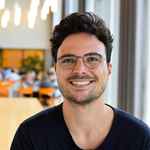
Communication Science (research)
You’re a curious mind, eager to find answers to the communication science topics you care about most. In the Research Master’s in Communication Science, you’ll work alongside world-class scholars, deepen your knowledge of the field, master research methods, and gain practical skills to conduct meaningful studies of your own. You’ll learn how to use your research to drive social change, and prepare for a research-based career in academia or beyond.
🏆 #1 in Communication & Media Studies according to the QS World University Rankings by Subject 2025
Academic and professional specialisation
Engage with renowned scholars
Gain practical experience through an internship
Cutting-edge methodologies
Specialised mentoring programme
Is the Research Master's in Communication Science right for you?
Yes, if you:
- Want to develop your research skills to use in academia or professional settings.
- Aspire to gain hands-on research experience in the academic or professional field through an internship.
- Consider pursuing a PhD after your graduation or seeking a career where research skills are a core competency.
- Desire to extend your Master’s experience, delve deeper into the field of Communication Science, and explore your own research questions.
- Want to immerse yourself in a challenging academic environment and learn from scholars who are leading the global dialogue in Communication Science.
- Want to become part of a network of highly motivated students with a strong interest in the digital environment.

With the Research Master’s so many opportunities open up, from a career in academia to jobs in research and analysis for NGOs or in the private sector.Read more about the experiences from current students
Leave your details to learn more about this programme:
- Student experiences
- Example of a weekly schedule
- Directly sent to your mailbox
- Degree programme
- Communication Science (research)
- Type
- Regular study programme
- Mode
- Full-time
- Credits
- 120 ECTS, 24 months
- Language of instruction
- English
- Starts in
- September
- RIO code
- 60163
- Location
- Roeterseiland campus